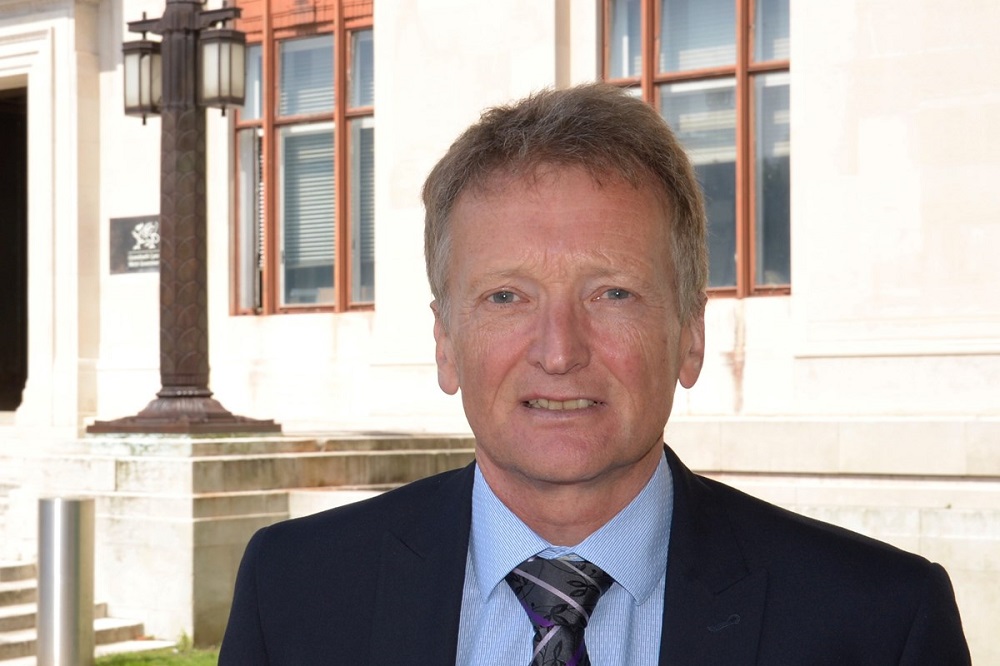Welsh Government criticised for Covid preparations by UK Inquiry

Martin Shipton
The Welsh Government’s preparations for a pandemic have been described as “labyrinthine”, with the reality not matching the rhetoric, according to the first report issued by the UK Covid-19 Inquiry.
The Inquiry Chair, Baroness Heather Hallett, is urging the new UK Government and the governments of Wales, Scotland and Northern Ireland to implement promptly her 10 key recommendations following publication of the Inquiry’s report of its first investigation into the nation’s resilience and preparedness for the pandemic.
These recommendations, made public on Thursday July 18, include a major overhaul of how the UK government prepares for civil emergencies such as the Covid-19 pandemic.
Key recommendations include a radical simplification of civil emergency preparedness and resilience systems, holding a UK-wide pandemic response exercise at least every three years and the creation of a single, independent statutory body responsible for whole system preparedness and response.
Resilience Team
In relation to the Welsh Government’s handling of the crisis, the report states: “The Welsh Government Resilience Team was located within the Community Safety Division before the Covid-19 pandemic.
“Both had been moved around regularly within the Welsh Government: they were originally located within the Human Resources Group, before transferring to the Local Government and Communities Group in 2011 and then to the Education and Public Services Group in 2017.
“The Welsh Government Resilience Team has been reorganised again since the pandemic. In 2021, it was expanded to become a self-standing division that included civil contingencies, national security and cyber resilience, known as the Civil Contingencies and National Security Division. In 2022, it was reorganised again.
“This time, the Civil Contingencies and National Security Division was merged with the Community Safety Division and the Covid Recovery and Restart Division to form a new Risk, Resilience and Community Safety Directorate. This included the Wales Pandemic Flu Preparedness Group, which was established to implement work set by the UK’s Pandemic Flu Readiness Board. This constant flux does not improve resilience.
“Health services are almost entirely devolved in Wales. However, in relation to civil emergencies, the 2011 concordat between the UK and Welsh governments for the Civil Contingencies Act 2004 provided a broad principle for the operation of emergency powers in Wales. It emphasised cooperation and consultation between the UK and Welsh governments on emergency planning and response. Notwithstanding the range of entities in Wales ostensibly charged with preparedness, Sir Frank Atherton, Chief Medical Officer for Wales from August 2016, established the Health Protection Advisory Committee in May 2018.
“This was to bring together a range of organisations involved in health protection issues. Its purpose was to help understand the broad sweep of threats from infectious diseases – no other committee had previously been convened to address such threats or to look at health protection issues.
“For an administration that prided itself on its efficiency of movement because of its relative lack of scale, and which had described itself as operating, effectively, ‘under one roof’, the reality did not match the rhetoric. The system was labyrinthine. The Inquiry was not persuaded by the mitigation offered by Dr [Andrew] Goodall [the chief executive of NHS Wales] that it made more sense to those within the system than those outside of it. An opportunity to create a coherent and, therefore, dynamic system in Wales had been hampered by undue complexity.

“The role of the Chief Medical Officer for Wales was to provide advice to the Welsh Government on public health policy. They were also responsible for overseeing the Health Emergency Planning Unit, which led on pandemic preparedness and civil contingency planning within the Health and Social Services Group in Wales. The Chief Scientific Adviser for Wales and the Chief Scientific Adviser for Health in Wales were not central to pandemic preparedness and resilience.
“The various local civil contingencies structures in Wales have been dealt with above. At a high level, these included the Wales Resilience Forum, Welsh local resilience forums and the Wales Resilience Partnership Team. Welsh local resilience forums bring together Category 1 and 2 responders and are the principal mechanisms for multi-agency planning and cooperation at a local level. As with England, the four local resilience forums in Wales are based on police force areas.
“The Local Resilience Forum Co-ordinators Group also provides support and shared knowledge across the local resilience forums.The Wales Resilience Partnership Team is a group that sits underneath the Wales Resilience Forum. It supports them by providing secretariat and policy services and operationalisation of some of the activities discussed at the Wales Resilience Forum.
“The Welsh Government leads on all-Wales coordination and has a support role for local resilience forums. The Wales Resilience Forum is a structure within the Welsh Government that is chaired by the First Minister and includes representation from all multi-agency partners, including from the local resilience forums, the Welsh Local Government Association, the Society of Local Authority Chief Executives (Solace) Cymru and Public Health Wales.The Wales Resilience Forum provides strategic guidance and advice to public sectors and local resilience forums on issues not confined to health, and is an advisory rather than a strategic decision-making body.
Operated effectively
Chris Llewelyn, chief executive of the Welsh Local Government Association from January 2019, told the Inquiry that the structures described above were in place and operated effectively but needed to be supplemented with other arrangements during the Covid-19 pandemic.Mr Llewelyn’s view was that there was a need for the engagement of all partners in a whole-system reform or redesign of the arrangements.
“A December 2012 report by the Wales Audit Office on civil contingencies in Wales concluded: “Too many emergency planning groups and unclear accountabilities add inefficiency to the already complex resilience framework.” The current structure is leading to inefficiencies at a local level, unnecessary complexity and unclear accountabilities” and is “an ineffective framework for resilience in Wales”.
“The complexity of the system risks “fragmentation of resilience activity with potential overlaps or gaps in the arrangements for resilience”. These observations were as true in 2020, as the Covid-19 pandemic struck Wales, as they were when the report was written in 2012. Not much had been done in the meantime by the Welsh Government to simplify, streamline and rationalise the entities charged with leading and administering emergency preparedness in Wales.”
Heartened
Anna-Louise Marsh-Rees, of the campaign group Covid Bereaved Families For Justice Cymru, said: “We are heartened to see that the voices of the bereaved lead the report. The Chair has been able to uncover a lot of deficiencies in systems in Wales having only received oral statements from seven Welsh witnesses & written evidence from an additional 12.
“This begs the question – how much more could have been uncovered that would have produced more Wales focused recommendations had there also been a Wales specific inquiry.
“It is however UK/England heavy and many of the inclusions on Wales focus only on interconnectivity with the UK Government rather than the issues that were unique to Wales.
“The report doesn’t distinguish enough between the four nations in order to highlight where the deficiencies are most acute to inform the targeted steps each nation is to take eg a particular paucity of quality data in Wales and what Wales specifically needs to do to remedy this.
“Some recommendations lack clarity in respect of how they will be met, for example, ‘UK and devolved nations need a better approach to risk assessment’ – what does better mean? How will this be measured? They’re very logical recommendations but who is on the hook for creating common systems? Who will report on progress? What is the Welsh Government responsible for?
“Some imply the UK Government will lead – ie Recommendation 5 Data and Research – that’s not the case right now. It’s naive maybe to assume the devolved nations will work with the UK Government and the challenges that all these operational systems pose can be inoperable.
“No lessons have been learnt from previous pandemics and there is zero mention of the then Health Minister Vaughan Gething having not read any pandemic preparatory documents.
“We disagree that they prepared for the wrong pandemic – flu is an airborne virus too and needed clean indoor air in hospital settings but they had done nothing to prepare for that either.
“We’re surprised there are only four paragraphs in the report on surge capacity and only two on PPE, and no mention that only two thirds of the masks protect against an airborne virus which flu is.
“We’re pleased to see the requirement for each government to produce and publish reports on their approach to whole system civil emergency preparedness and resilience. This is fundamental to improving scrutiny and public accountability.
“The Welsh Government failed us. They failed my dad and all our loved ones. This cannot happen again and yet there is no indication four and a half years on that any progress has been made. Wales still does not have its own risk register. More must be done now. “
Support our Nation today
For the price of a cup of coffee a month you can help us create an independent, not-for-profit, national news service for the people of Wales, by the people of Wales.






No wonder Drakeford & Gething didn’t want an inquiry!
Vaughan (Delete all the Messages) Gething, certainly didn’t want one!
And Johnson?
fact was, at the time Wales did a far better job than Westminster at a fraction of the cost.
Really ?? I remember the firebreak, Drakeford specifically said that we would see the benefits for a few weeks after. A few weeks later we had the highest covid rates in Europe
Oh look! A squirrel!
“fact was, at the time Wales did a far better job than Westminster at a fraction of the cost.”
What are you basing that on?
Seems to skirt around the issues caused by civil servants and politicians double-jobbing roles in UK and English governance. The two functions need to be completely separated with different people in different physical locations to avoid conflict of interest like the Roche test gazumping.
Hunt, Fat Shanks, Sunak and Hancock @Slash, Burn, Pillage and Leggitt, get whopping pensions for bumping off tens of thousands of us and a handful of save the planet protesters get tons of porridge…!
Which country was prepared? None.
Westminster controlled the purse strings and ignored it,s own advice which influenced other nations.